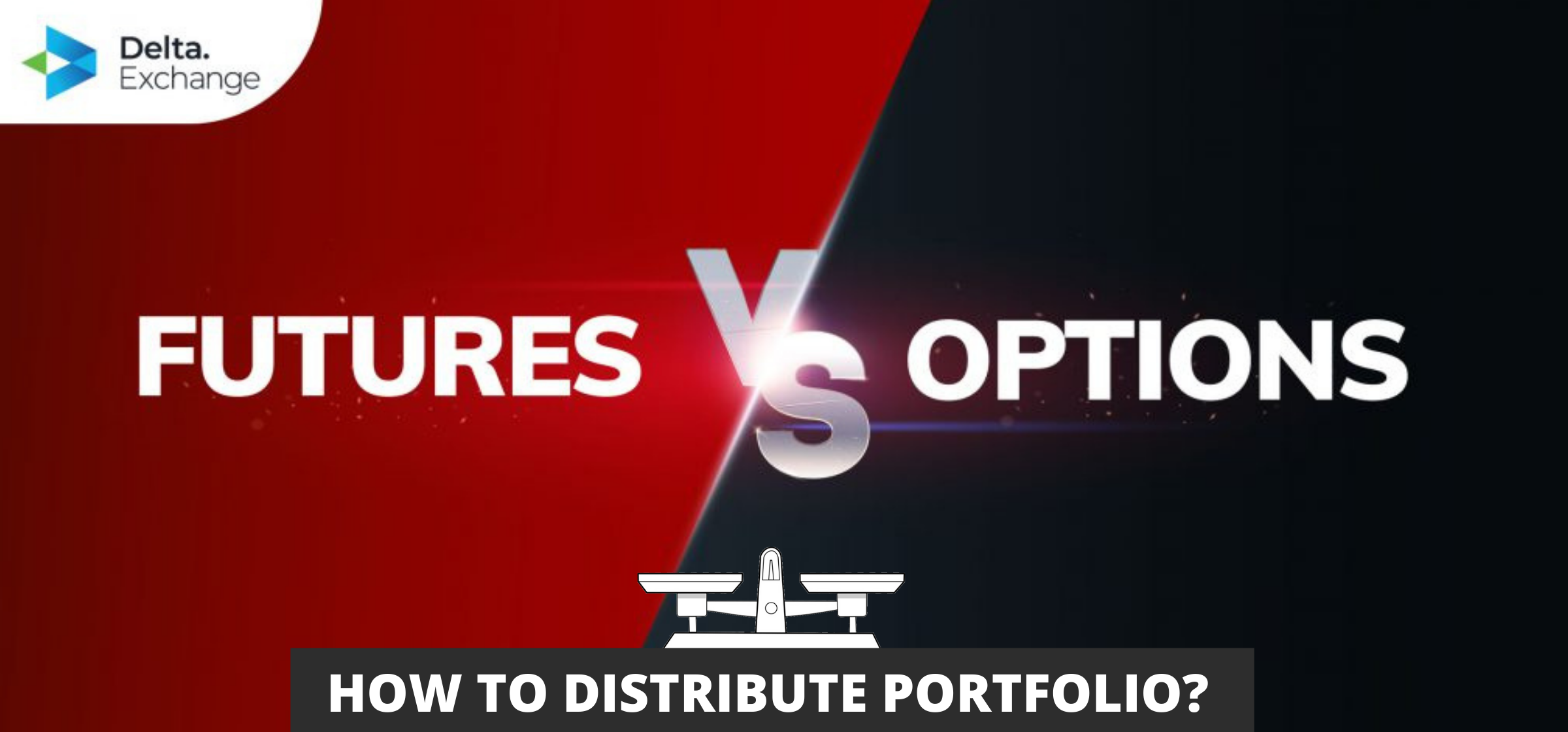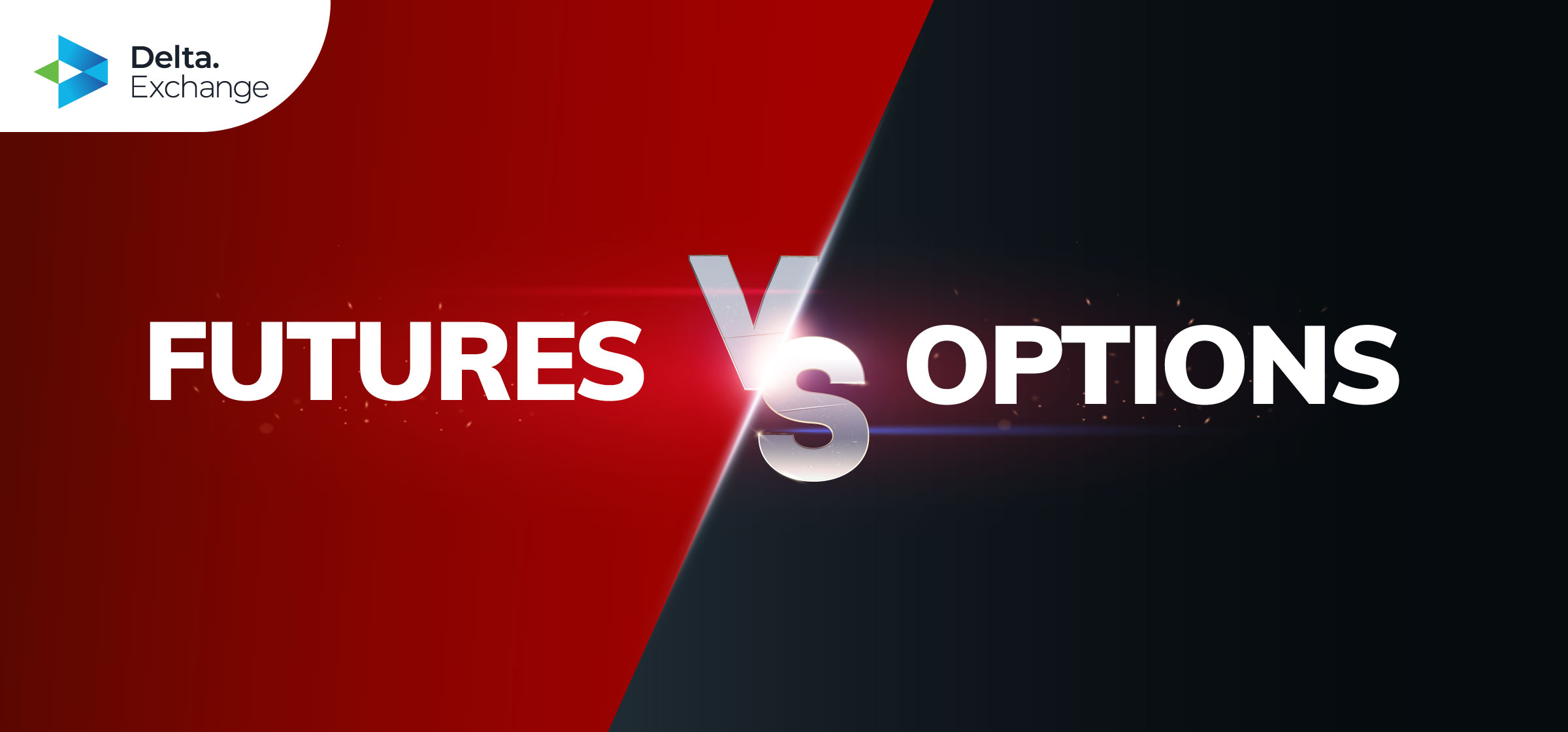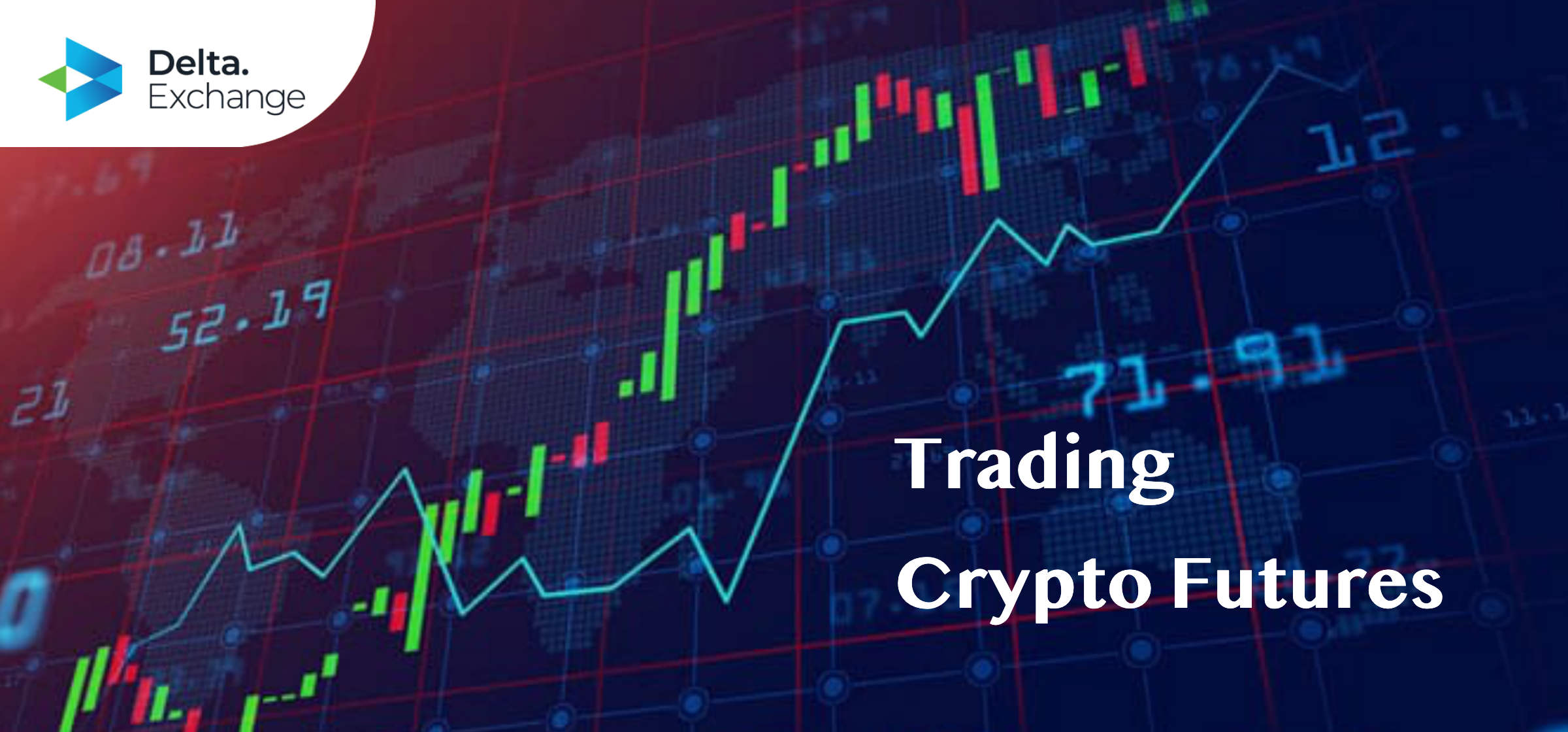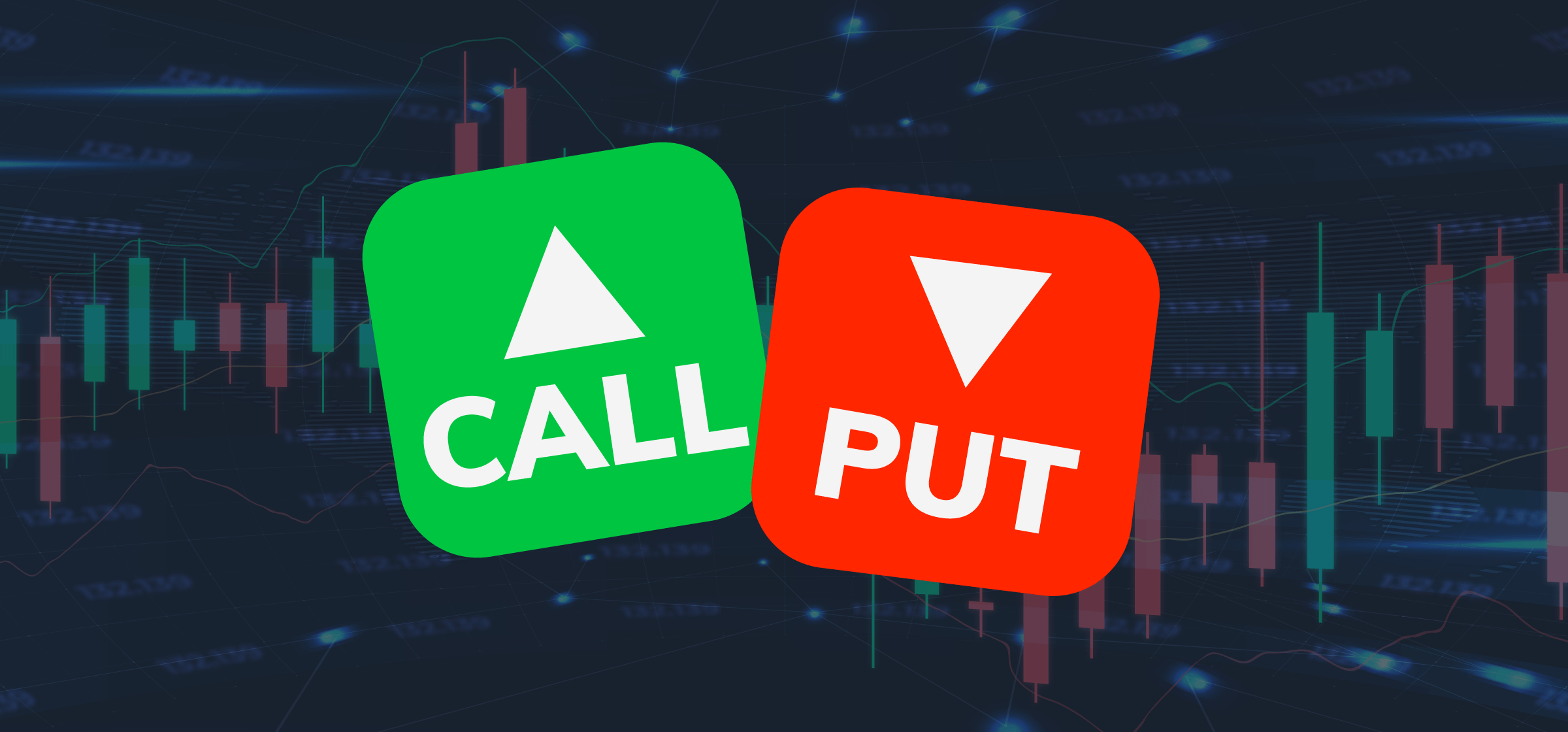Educational
December 11, 2020
Crypto Options vs Futures: How Should you Distribute Your Portfolio?
Shubham GoyalProduct Specialist
Ever since the launch of Bitcoin futures trading by the Chicago Board Options Exchange (CBOE) and the Chicago Mercantile Exchange (CME) at the end of 2017, there has been significant hype surrounding crypto derivatives. Seeing as how during that time the crypto-market was nearing the end of its bull run, the introduction of cryptocurrency derivatives above all allowed traders the opportunity to mitigate many of the risks associated with the fluctuating cryptocurrency prices.
Along with being risk management tools, crypto derivatives like options and futures have a range of other benefits, and it can be quite a difficult task to choose how to distribute your portfolio. The good news is that we can help you make that decision! But first, let’s quickly see what crypto futures and options entail, shall we?
What Is a Crypto Futures Exchange?
Futures are derivatives contracts that allow you to buy or sell a particular cryptocurrency at a predetermined price and have a fixed maturity date. For instance, in case of Bitcoin futures trading, traders operating in the cryptocurrency futures market wager on the price of Bitcoin at a certain point in the future. So by forecasting whether the price of BTC would rise or fall at a specific time and date in the future, traders can either go for a long position to buy Bitcoin at a fixed price upon the expiry of the Bitcoin futures contract, or a short position and agree to sell BTC at a fixed price when the contract expires.
Cryptocurrency futures exchanges involve a ‘margin’- which is a small percentage of the actual transaction value that a trader has to wager away during the trade. So both counterparties involved in Bitcoin futures trading have to deposit the marginal price, although the Bitcoin futures prices differ for them depending on the market conditions. A long position holder profits when there’s a price increase in BTC. On the other hand, a seller benefits when the Bitcoin futures price drops.
Read more about crypto futures in detail. For more information on Bitcoin futures trading, including Bitcoin futures price and more, you can visit our website here, and to trade in the cryptocurrency futures market on Delta, you can go over here!
Why Should You Consider Crypto Futures Exchanges?
Now let’s take a look at some advantages of participating in the cryptocurrency futures market, shall we?
1. Margin Trading and Leveraging:
With crypto spot trading, you get to make profits if you buy low and sell high. However, this trade only works when the price of a crypto goes up. Further, leverage trading is not possible in spot trading.
Crypto futures exchanges, on the flip side, have the scope for margin trading or leverage. The contracts make it possible to make a relatively higher profit out of a small initial investment, as the leverage is high and the traders can open or close market positions with just a fraction of their personal balance.
2. Hedging:
Crypto futures exchanges allow a trader to manage financial risks by letting them lock in a fixed price upfront. This gives them a layer of protection against fluctuations in the ever-shifting crypto prices, as they can continue to pay that fixed price even when the actual price of a cryptocurrency shifts. This is known as hedging a position: hedging allows traders to safeguard their investments.
3. You can Profit off of Price Fluctuations:
Moreover, crypto futures exchanges allow a trader to profit off of the changes in a cryptocurrency’s price. For instance, an investor can benefit from a projected price drop in BTC through using short selling in Bitcoin futures trading – which is betting against Bitcoin’s price.
4. There’s No Need to Hold A Cryptocurrency Itself:
Participating in crypto futures exchanges allows traders to speculate on the future prices of underlying assets without having to purchase the cryptocurrencies itself. This means a trader attempting Bitcoin futures trading can bet on the price of BTC without owning the coin itself. Similarly, all crypto futures exchanges enable people who cannot trade the actual cryptocurrencies due to location-specific issues wager on their prices; plus, traders have to spend less time gaining exposure to the market.
5. Traders Can Commit to Multiple Trades Simultaneously:
Since operating in the cryptocurrency futures market requires a trader to deposit only a margin of the underlying currency’s actual price, they can engage their funds in other, short-term trades instead.
What Is Crypto Options Trading?
A crypto options contract is a derivative instrument much like a crypto futures contract, except with options the buyer or the holder isn’t obligated to execute the trade. So while traders have the right to either buy or sell the underlying crypto asset at a fixed price within a given period of time, they are not bound to do so.
The right to buy is the Call option, and the right to sell is the Put option. Delta Exchange also allows you to trade in Move options. A Move contract is essentially an Option Straddle, or a direction-neutral option strategy that combines a put option and a call option with the same strike price (the price at which the holder of an option can buy or sell the underlying asset).
To find out more about trading options on Delta Exchange, you can visit the website here!
Why Should You Trade Crypto Options?
Options contracts offer holders versatility, and are used to hedge or speculate on underlying asset prices, much like the usual cryptocurrency futures contracts. In fact, crypto options provide all the usual benefits of crypto futures exchanges.
You can employ both margin trading and leveraging strategies with crypto options trading. Plus, you can benefit in both bullish and bearish markets with crypto options: If you are bullish on a cryptocurrency and expect its price to rise, you can go for a call option. Alternatively, you can opt for a put option if you are bearish.
During times of high market uncertainty with large price swings in either direction, Move options are the best investment you can avail, since they allow you to profit off of market volatility without requiring you to predict the direction of the price change.
Crypto Options vs. Futures: How to Distribute Your Portfolio?
In truth, crypto futures and options have only a few distinctions, and adding either to your portfolio can be fairly risky. As a derivatives trader, you’d ultimately have to decide between the two depending on your risk appetite and amount of liquidity. But we’ve rounded up a few factors that can help you make a better decision:
With crypto options, your trading takes a more conservative approach. A trader who chooses to buy options never stands to lose more than their premium – or their initial investment. The premium value might vary depending on the difference between the option strike price and the actual price of the underlying crypto, but the trader doesn’t lose any more than this value. However, it’s still true that the option seller faces comparatively more risk, as selling options might result in high losses in volatile markets.
Crypto futures, being legally binding agreements to trade the underlying cryptocurrency, are more risky than options in that the traders cannot back away from the trade. Plus, profits and losses sustained while trading in cryptocurrency futures markets are relative to the actual value of the crypto assets without a premium to cushion the downside.
Now, aside from the risk factor, trading in cryptocurrency futures markets provides far higher returns than options trading, especially when you employ margin trading. Plus, if you understand the markets for a particular cryptocurrency, you’re very likely to make bigger profits trading futures with leverage instead of options.
With options trading, on the other hand, you can perform all trades without understanding a lot about the crypto markets, since the risk exposure in those cases is limited to the premium only. But options trading can also be more complicated for new traders, so it’s best to try out more of futures trading as a beginner.
To start trading crypto options and futures on Delta, here are the steps you have to follow:
- Register: This takes less than 1 minute and requires only a verified email address. No other KYC is needed.
- Fund Your Delta Exchange Wallet: Only bitcoins are accepted in the Delta Exchange Wallet. A unique BTC deposit address will be generated for you when you register.
- Convert BTC to USDC: All futures and perpetual contracts on Delta Exchange are margined and settled either in BTC or USDC. For USDC settled contracts, use the currency converter to change BTC to USDC.
- Make Your First Trade: Now you are all set to trade on Delta Exchange!
Happy crypto options and futures trading!
FuturesTrade Futures & Perpetual Swaps on 25+ crypto assets, with up to 100x leverage
OptionsTrade call, put or MOVE options on BTC, ETH, BNB and LINK
Interest Rate SwapsInterest rate derivatives that enable swap of fixed-floating rates
Mock Trading PlatformLearn Crypto Derivatives trading without risking real capital
Research & AnalyticsExclusive data, charts and analytics to help you trade smarter













